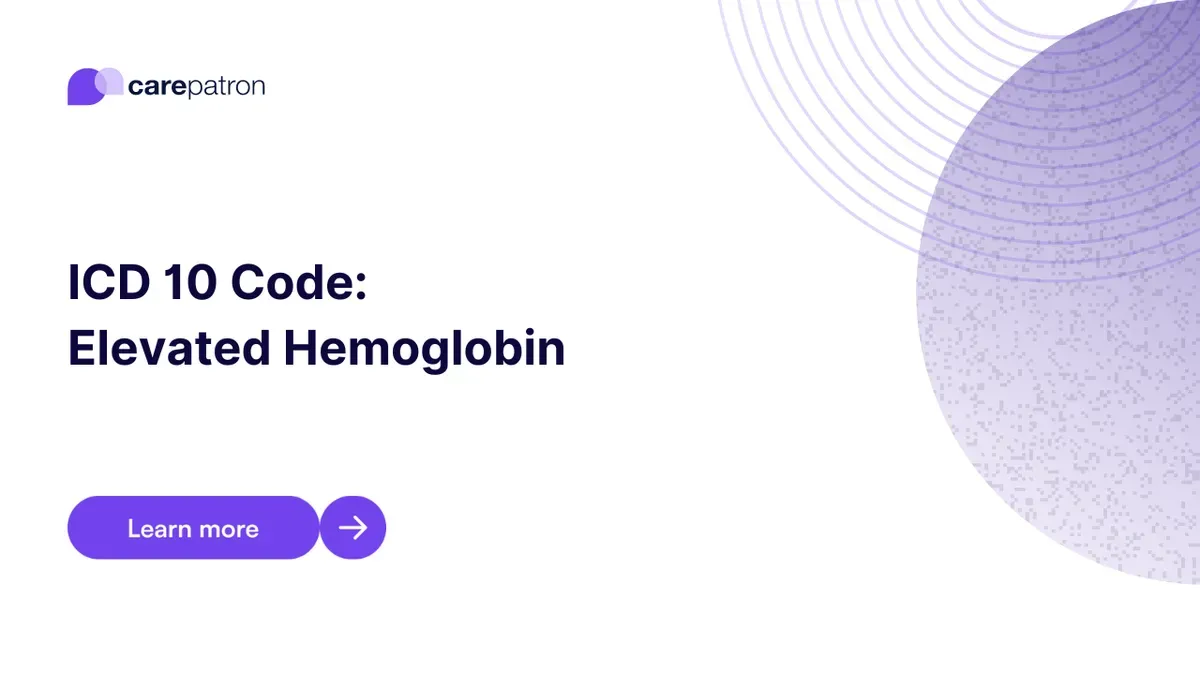
Elevated Hemoglobin ICD-10-CM Codes
Learn ICD-10 Codes Used for Elevated Hemoglobin. Understand the categorization and treatment of medical conditions related to elevated hemoglobin levels.
Use Code
EHR and practice management software
Get started for free
*No credit card required
Free
$0/usd
Unlimited clients
Telehealth
1GB of storage
Client portal text
Automated billing and online payments
